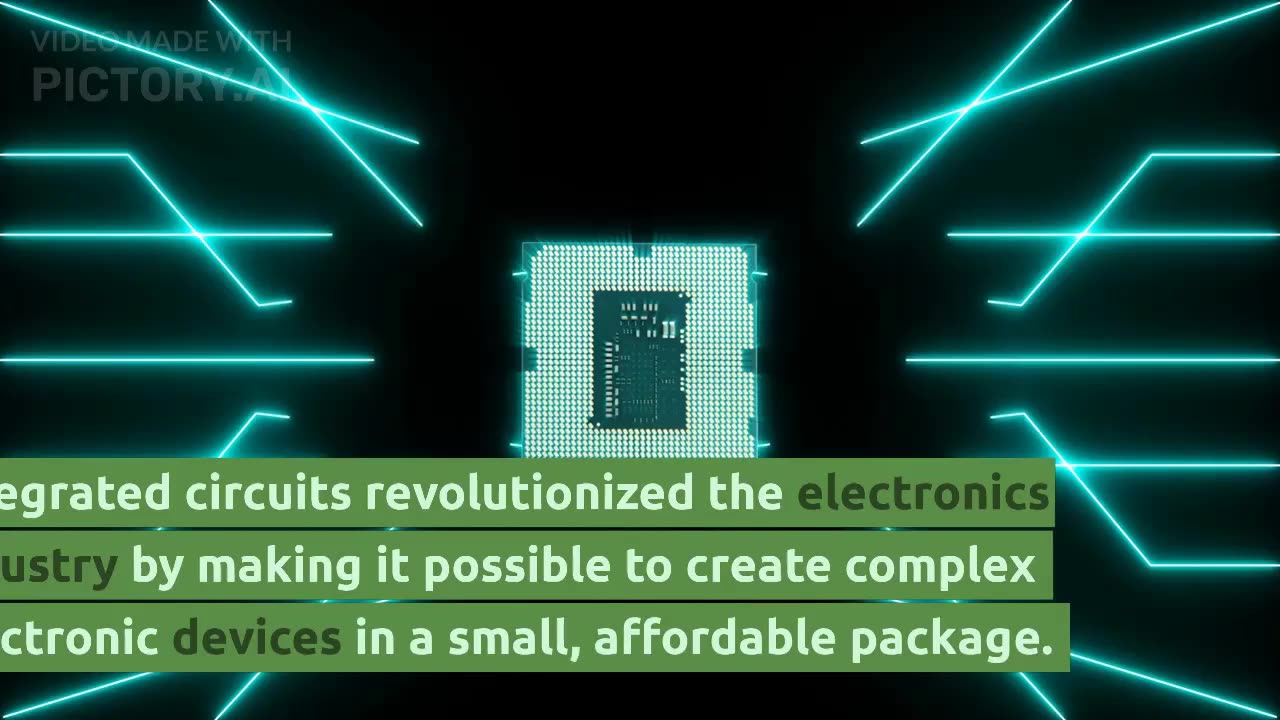Premium Only Content

What is Transistor? History of the Transistor and Their Positive Impact on the Society
A transistor is a semiconductor device that amplifies or switches electronic signals. It is a key component in electronic devices such as radios, televisions, computers, and smartphones. The invention of the transistor in 1947 revolutionized electronics and paved the way for the development of modern computing and communication technologies.
The history of the transistor can be traced back to the late 19th century when researchers discovered the phenomenon of the "Edison effect." This effect occurs when an electric current flows from a heated filament to a metal plate inside a vacuum tube. The flow of electrons creates a current that can be amplified or switched. Vacuum tubes were used extensively in early electronics, but they were large, fragile, and consumed a lot of power.
In the 1930s, researchers began experimenting with semiconductor materials such as germanium and silicon. They discovered that these materials could exhibit similar electronic properties to vacuum tubes but in a much smaller and more efficient package. In 1947, William Shockley, John Bardeen, and Walter Brattain of Bell Labs invented the first working transistor.
The invention of the transistor was a significant breakthrough in electronics. It replaced the bulky and fragile vacuum tubes with smaller, more reliable, and more efficient semiconductor devices. This enabled the development of a wide range of electronic devices, including radios, televisions, and computers.
In the 1950s and 1960s, the development of the transistor led to the creation of the first commercial transistor radio and the first solid-state computer. The transistor also enabled the development of integrated circuits, which are small chips that contain multiple transistors and other electronic components. Integrated circuits revolutionized the electronics industry by making it possible to create complex electronic devices in a small, affordable package.
The impact of the transistor on society has been enormous. It has enabled the development of modern computing and communication technologies, including smartphones, laptops, and the internet. It has also contributed to the miniaturization of electronics, making them more portable and accessible to the general public. The transistor has also had a significant impact on industry, enabling the automation of manufacturing and other processes.
In summary, the invention of the transistor was a key milestone in the history of electronics. It revolutionized the way electronic devices were built and enabled the development of modern computing and communication technologies. The impact of the transistor on society has been profound, transforming the way we live, work, and communicate.
-
 2:43:56
2:43:56
TimcastIRL
7 hours agoJimmy Kimmel FIRED, ABC Pulls Show Over Charlie Kirk Assassination Comments | Timcast IRL
373K208 -
 1:58:02
1:58:02
Barry Cunningham
8 hours agoJIMMY KIMMEL CANCELLED | OBAMA IS WHINING! | JD VANCE ON JESSE WATTERS!
104K127 -
 2:34:46
2:34:46
TheSaltyCracker
7 hours agoWe Got Him Fired ReeEEStream 9-17-25
150K366 -
 43:44
43:44
Man in America
10 hours agoAmericans Are About to Lose Everything—And They Don’t Even Know It
54.2K28 -
 1:41:11
1:41:11
Adam Does Movies
2 days ago $2.89 earnedTalking Movies + Ask Me Anything - LIVE
41.9K2 -
 3:40:08
3:40:08
I_Came_With_Fire_Podcast
16 hours agoNASA Blocks China, TPUSA BOOSTED, Chinese Spamoflauge, & Factional Division
41.6K6 -
 33:40
33:40
Jamie Kennedy
8 hours agoEp 222 Processing the Loss of Charlie Kirk | HTBITY with Jamie Kennedy
62.1K27 -
 1:32:05
1:32:05
Badlands Media
23 hours agoAltered State S3 Ep. 46: Tactical Nukes, Thermite, and the 9/11 Puzzle
74.7K10 -
 9:18
9:18
ARFCOM News
12 hours ago $1.97 earnedNSSF "Celebrates" ATF Partnership | Glocks BANNED | Redundant Spooky Boi Ban
39.3K9 -
 13:09:13
13:09:13
LFA TV
21 hours agoLFA TV ALL DAY STREAM - WEDNESDAY 9/17/25
309K61